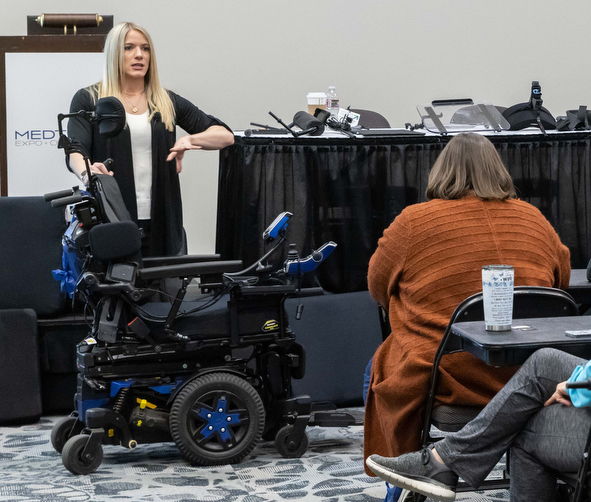ROCHESTER, N.Y. – As the Holidays begin, human nature is to reflect on what we have accomplished this year, what is still a priority, and what we need to focus on to make positive changes for the CRT (complex rehab technology) industry in 2024.
This was my first full year as the executive director of NCART (National Coalition For Assistive & Rehab Technology) and to describe the year as busy would be an understatement. NCART was established more than 20 years ago and remains the only National CRT association that focuses exclusively on fighting for CRT manufacturers, CRT suppliers, and CRT consumers.
 The year 2023 saw a shift as more of our legislative and regulatory focus turned to state issues versus our traditional focus on federal legislation and regulators. The states introduced 16 bills that ranged from the elimination of state income tax (WA.) to right-to-repair bills that were introduced to decrease the time for complex rehab wheelchair repairs. Consumers and the industry achieved a great victory when the industry and consumers worked together to have CMS recognize that seat elevation was medically necessary and issue coverage for this incredible product.
The year 2023 saw a shift as more of our legislative and regulatory focus turned to state issues versus our traditional focus on federal legislation and regulators. The states introduced 16 bills that ranged from the elimination of state income tax (WA.) to right-to-repair bills that were introduced to decrease the time for complex rehab wheelchair repairs. Consumers and the industry achieved a great victory when the industry and consumers worked together to have CMS recognize that seat elevation was medically necessary and issue coverage for this incredible product.
The industry and consumers now will need to work collaboratively to get power-standing systems covered. The industry and consumers spent time via Zoom educating members of Congress about CRT and HR 5371 at the NCART/NRRTS legislative and product expo event in September. HR 5371, which is a consumer right-to-choose bill that will allow the consumer to privately pay a portion of the cost for a titanium or composite manual wheelchair is being considered by Congress this winter.
The industry has been working on these issues for many years but has come up short because insurers and regulators thought we were only focused on short-term profits. Insurers and regulators missed the most important part—namely what these policy changes would mean for consumers. Nobody could argue that seat elevation and power standing products are medically necessary and bring incredible value to the lives of consumers who need this equipment.
 The repair system has always been inefficient and underfunded due to regulatory requirements that include prior authorization for repairs, and insurance contracts that do not let us fix items unless they are broken. The CRT industry needs insurers and regulators to recognize, cover, and pay for the services that CRT suppliers provide that we are not paid for, such as travel, evaluation, and assessment time. These are going to be items that NCART and our members focus on in 2024.
The repair system has always been inefficient and underfunded due to regulatory requirements that include prior authorization for repairs, and insurance contracts that do not let us fix items unless they are broken. The CRT industry needs insurers and regulators to recognize, cover, and pay for the services that CRT suppliers provide that we are not paid for, such as travel, evaluation, and assessment time. These are going to be items that NCART and our members focus on in 2024.
The industry and all CRT manufacturers and suppliers need to recognize that we cannot do this alone. Our best opportunity is for all industry members and consumers to communicate and work together to protect access to the equipment and services that consumers need to lead their lives.
I encourage everyone to get involved. Become a member of NCART, become a member of your state association, attend educational webinars from the folks at US Rehab, but most of all get active and help NCART protect the industry we care so much for.
Wayne Grau is executive director of the National Coalition For Assistive & Rehab Technology. If you are interested in learning more about NCART, Grau can be reached at [email protected]


